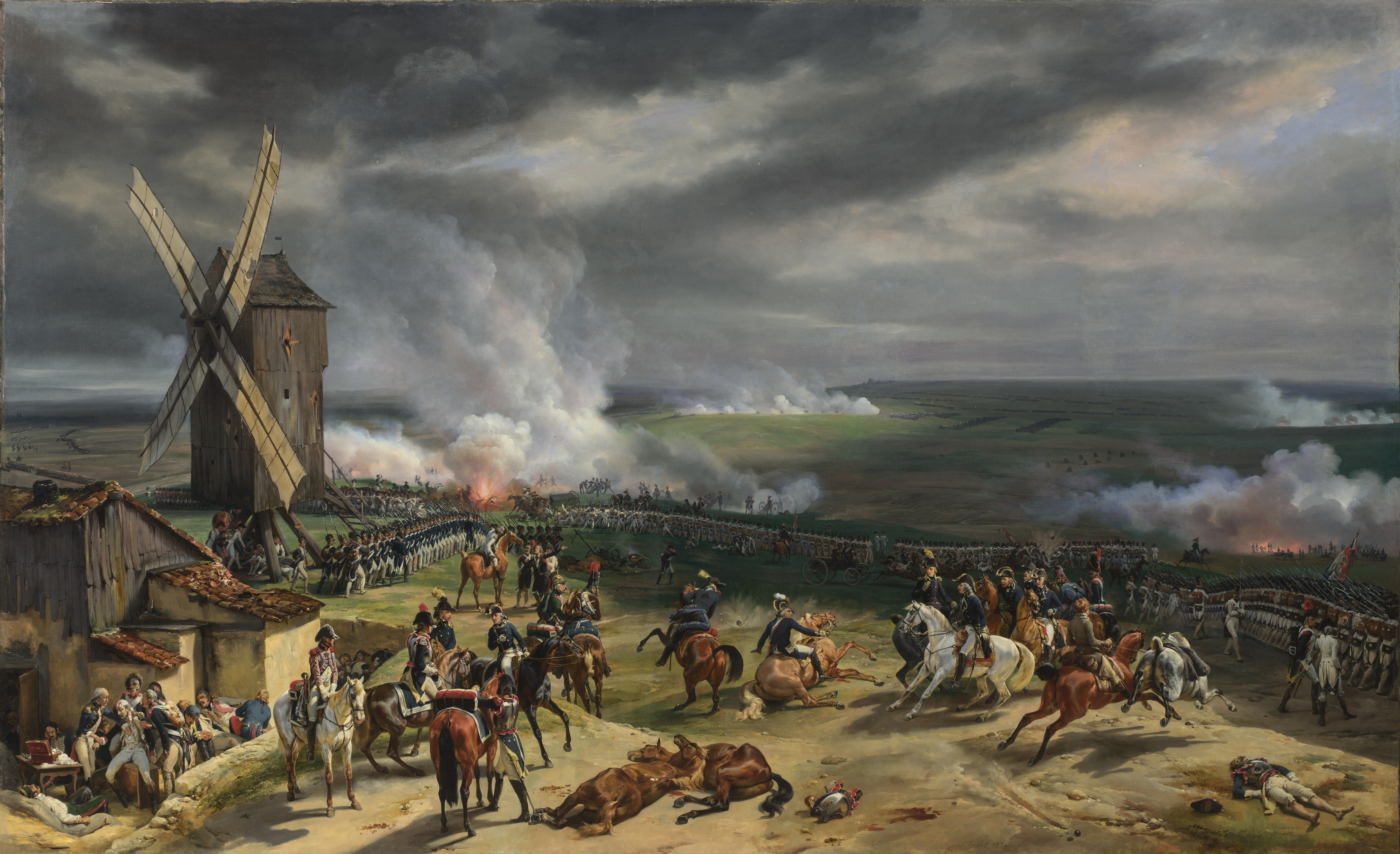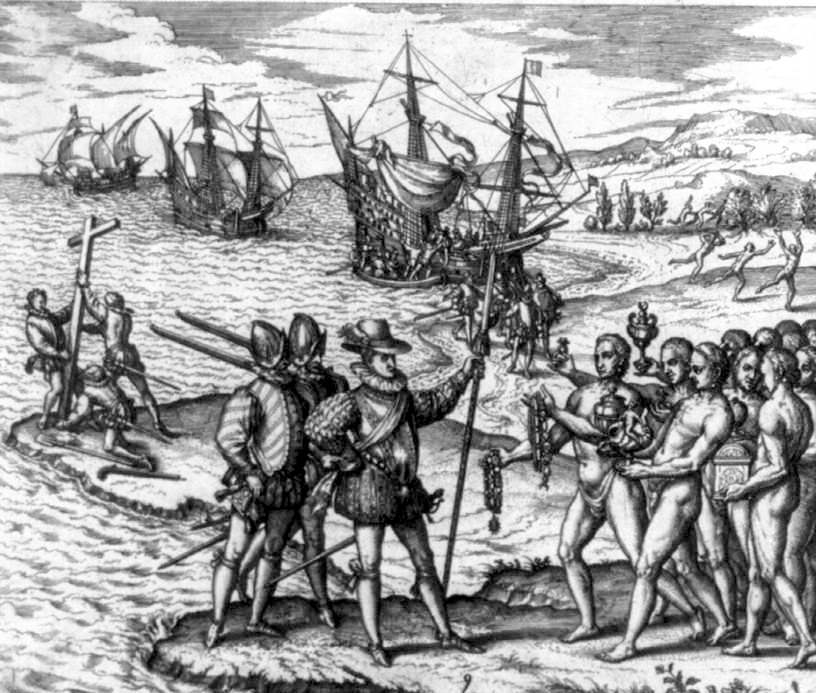|
François Capois
François Capois (1766 – 8 October 1806) was a Haitian rebel and army officer who fought in the Haitian Revolution. He was born in Port-de-Paix, Saint-Domingue on the island of Hispaniola, on the plantation of Laveaux/Lapointe. His name was a transformation of the name ''cappouet'', owner of the plantation. Military career His military career began in 1793 after a visit with independence leader Toussaint Louverture at Port-de-Paix. Then under the colonel Jacques Maurepas he was a member of the 9th brigade. His rank in the army changed quickly, first to Lieutenant, then to Captain of the 3rd Battalion. He participated under general Jacques Maurepas against all expeditions and invasions in the north-eastern region of the island. Capois is mostly known for his extraordinary courage and especially his herculean bravery at the Battle of Vertières in which the French general Viscount of Rochambeau, commander of Napoleon's army in Saint-Domingue (colonial Haiti), even called ... [...More Info...] [...Related Items...] OR: [Wikipedia] [Google] [Baidu] |
François Capois Dit Capois-la-Mort
François () is a French masculine given name and surname, equivalent to the English name Francis. People with the given name * François Amoudruz (1926–2020), French resistance fighter * François-Marie Arouet (better known as Voltaire; 1694–1778), French Enlightenment writer, historian, and philosopher * François Beauchemin (born 1980), Canadian ice hockey player for the Anaheim Ducks * François Blanc (1806–1877), French entrepreneur and operator of casinos * François Bonlieu (1937–1973), French alpine skier * François Cevert (1944–1973), French racing driver * François Chau (born 1959), Cambodian American actor * François Clemmons (born 1945), American singer and actor * François Corbier (1944–2018), French television presenter and songwriter * François Coty (1874–1934), French perfumer * François Coulomb the Elder (1654–1717), French naval architect * François Coulomb the Younger (1691–1751), French naval architect * François Couperin (1668– ... [...More Info...] [...Related Items...] OR: [Wikipedia] [Google] [Baidu] |
Demi-brigade
A ''demi-brigade'' () is a military formation used by the French Army since the French Revolutionary Wars. The ''demi-brigade'' amalgamated the various infantry organizations of the French Revolutionary infantry into a single unit. Each one was headed by a chef de brigade. The term "''demi-brigade''" was chosen to avoid the ''ancien régime'' connotations of the term "regiment". Napoleon ordered the term to be abandoned in 1803, and the ''demi-brigades'' were renamed regiments. The term was reused by certain later units in the French army, such as the 13th Demi-Brigade of the Foreign Legion, the only permanent demi-brigade in the modern French Army. Background The French Legislative Assembly voted to declare war on Austria on 20 April 1792, and Prussia joined the war against France. 1792 ended well for France, having conquered the Austrian Netherlands (Belgium) and parts of Germany. However, by early 1793, having guillotined Louis XVI of France on 21 January, France fo ... [...More Info...] [...Related Items...] OR: [Wikipedia] [Google] [Baidu] |
Military Leaders Of The French Revolutionary Wars
A military, also known collectively as armed forces, is a heavily armed, highly organized force primarily intended for warfare. Militaries are typically authorized and maintained by a sovereign state, with their members identifiable by a distinct military uniform. They may consist of one or more military branches such as an army, navy, air force, space force, marines, or coast guard. The main task of a military is usually defined as defence of their state and its interests against external armed threats. In broad usage, the terms "armed forces" and "military" are often synonymous, although in technical usage a distinction is sometimes made in which a country's armed forces may include other paramilitary forces such as armed police. Beyond warfare, the military may be employed in additional sanctioned and non-sanctioned functions within the state, including internal security threats, crowd control, promotion of political agendas, emergency services and reconstructio ... [...More Info...] [...Related Items...] OR: [Wikipedia] [Google] [Baidu] |
People Of The Haitian Revolution
The term "the people" refers to the public or common mass of people of a polity. As such it is a concept of human rights law, international law as well as constitutional law, particularly used for claims of popular sovereignty. In contrast, a people is any plurality of persons considered as a whole. Used in politics and law, the term "a people" refers to the collective or community of an ethnic group or nation. Concepts Legal Chapter One, Article One of the Charter of the United Nations states that "peoples" have the right to self-determination. Though the mere status as peoples and the right to self-determination, as for example in the case of Indigenous peoples (''peoples'', as in all groups of indigenous people, not merely all indigenous persons as in ''indigenous people''), does not automatically provide for independent sovereignty and therefore secession. Indeed, judge Ivor Jennings identified the inherent problems in the right of "peoples" to self-determination, as i ... [...More Info...] [...Related Items...] OR: [Wikipedia] [Google] [Baidu] |
1806 Deaths
Events January–March *January 1 ** The French Republican Calendar is abolished. ** The Kingdom of Bavaria is established by Napoleon. *January 5 – The body of British naval leader Horatio Nelson, 1st Viscount Nelson, lies in state in the Painted Hall of Greenwich Hospital, London, Greenwich Hospital, London, prior to his funeral. *January 8 – Battle of Blaauwberg: British infantry force troops of the Batavian Republic in the Dutch Cape Colony to withdraw. *January 9 ** The Dutch commandant of Cape Town surrenders to British forces. On January 10, formal capitulation is signed under the Treaty Tree in Papendorp (modern-day Woodstock, Cape Town, Woodstock). ** Horatio Nelson, 1st Viscount Nelson, Lord Nelson is given a state funeral and interment at St Paul's Cathedral in London, attended by George IV of the United Kingdom, the Prince of Wales. *January 18 – The Dutch Cape Colony capitulates to British forces, the origin of its status as a colony within the British ... [...More Info...] [...Related Items...] OR: [Wikipedia] [Google] [Baidu] |
1766 Births
Events January–March * January 1 – Charles Edward Stuart ("Bonnie Prince Charlie") becomes the new Stuart claimant to the throne of Great Britain, as King Charles III, and figurehead for Jacobitism. * January 14 – Christian VII becomes King of Denmark-Norway. * January 20 – Burmese–Siamese War: Outside of the walls of the Thailand capital of Ayutthaya, tens of thousands of invaders from Burma (under the command of General Ne Myo Thihapate and General Maha Nawatra) are confronted by Thai defenders led by General Phya Taksin. The defenders are overwhelmed and the survivors take refuge inside Ayutthaya. The siege continues for 15 months before the Burmese attackers collapse the walls by digging tunnels and setting fire to debris. The city falls on April 9, 1767, and King Ekkathat is killed. * February 5 – An observer in Wilmington, North Carolina reports to the Edinburgh newspaper ''Caledonian Mercury'' that three ships have been seize ... [...More Info...] [...Related Items...] OR: [Wikipedia] [Google] [Baidu] |
History Of Haiti
The recorded history of Haiti began in 1492, when the European captain and explorer Christopher Columbus landed on a large island in the region of the western Atlantic Ocean that later came to be known as the Caribbean. The western portion of the island of Hispaniola, where Haiti is situated, was inhabited by the Taíno people, Taíno and Arawak peoples, Arawakan people, who called their island ''Ayiti.'' The island was promptly claimed for the Spanish Empire, Spanish Crown, where it was named ''La Isla Española'' ("the Spanish Island"), later Latinisation of names, Latinized to ''Hispaniola''. By the early 17th century, the French had built a settlement on the west of Hispaniola and called it Saint-Domingue. Prior to the Seven Years' War (1756–1763), the economy of Saint-Domingue gradually expanded, with sugar and, later, coffee becoming important export crops. After the war which had disrupted maritime commerce, the colony underwent rapid expansion. In 1767, it exported indigo ... [...More Info...] [...Related Items...] OR: [Wikipedia] [Google] [Baidu] |
Henri Christophe
Henri Christophe (; 6 October 1767 – 8 October 1820) was a key leader in the Haitian Revolution and the only monarch of the Kingdom of Haiti. Born in the British West Indies, British Caribbean, Christophe was possibly of Senegambian descent. Beginning with the slave uprising of 1791, he rose to power in the ranks of the Haitian revolutionary military. The revolution succeeded in gaining independence from France in 1804. In 1805 he took part under Jean-Jacques Dessalines in the capture of Era de Francia, Santo Domingo (now Dominican Republic), against French forces who acquired the colony from Spain in the Peace of Basel, Treaty of Basel. After Dessalines was assassinated, Christophe retreated to the Plaine-du-Nord and created a separate government. On 17 February 1807, he was elected President of Haïti, president of the State of Haiti, as he named that area. Alexandre Pétion was elected president of the Republic of Haiti (1806–1820), Republic of Haiti in the south. On 26 ... [...More Info...] [...Related Items...] OR: [Wikipedia] [Google] [Baidu] |
Limonade
Limonade (; ) is a commune in the Cap-Haïtien Arrondissement, in the Nord department of Haiti. It has 69,256 inhabitants. Christopher Columbus and his crew celebrated the first Christmas in the Americas at Limonade in 1492. , ''www.limonadehaiti.com'' Limonade is also the city in which François Capois, a renowned hero of the , died. In 2012, a new university built by the Dominican Republic
The Dominican Republic is a country located on the island of His ...
[...More Info...] [...Related Items...] OR: [Wikipedia] [Google] [Baidu] |
Cap-Haïtien
Cap-Haïtien (; ; "Haitian Cape") is a List of communes of Haiti, commune of about 400,000 people on the north coast of Haiti and capital of the Departments of Haiti, department of Nord (Haitian department), Nord. Previously named ''Cap‑Français'' (; initially ''Cap-François'' ) and ''Cap‑Henri'' () during the rule of Henri Christophe, Henri I, it was historically nicknamed the ''Paris of the Antilles'', because of its wealth and sophistication, expressed through its architecture and artistic life. It was an important city during the colonial period, serving as the capital of the French Colony of Saint-Domingue from the city's formal foundation in 1711 until 1770 when the capital was moved to Port-au-Prince. After the Haitian Revolution, it became the capital of the Kingdom of Haiti under King Henri I until 1820. Cap-Haïtien's long history of independent thought was formed in part by its relative distance from Port-au-Prince, the barrier of mountains between it and the so ... [...More Info...] [...Related Items...] OR: [Wikipedia] [Google] [Baidu] |
Achilles
In Greek mythology, Achilles ( ) or Achilleus () was a hero of the Trojan War who was known as being the greatest of all the Greek warriors. The central character in Homer's ''Iliad'', he was the son of the Nereids, Nereid Thetis and Peleus, king of Phthia and famous Argonauts, Argonaut. Achilles was raised in Phthia along with his childhood companion Patroclus and received his education by the centaur Chiron. In the ''Iliad'', he is presented as the commander of the mythical tribe of the Myrmidons. Achilles' most notable feat during the Trojan War was the slaying of the Trojan prince Hector outside the gates of Troy. Although the death of Achilles is not presented in the ''Iliad'', other sources concur that he was killed near the end of the Trojan War by Paris (mythology), Paris, who shot him with an arrow. Later legends (beginning with Statius' unfinished epic ''Achilleid'', written in the first century CE) state that Achilles was invulnerable in all of his body except ... [...More Info...] [...Related Items...] OR: [Wikipedia] [Google] [Baidu] |





